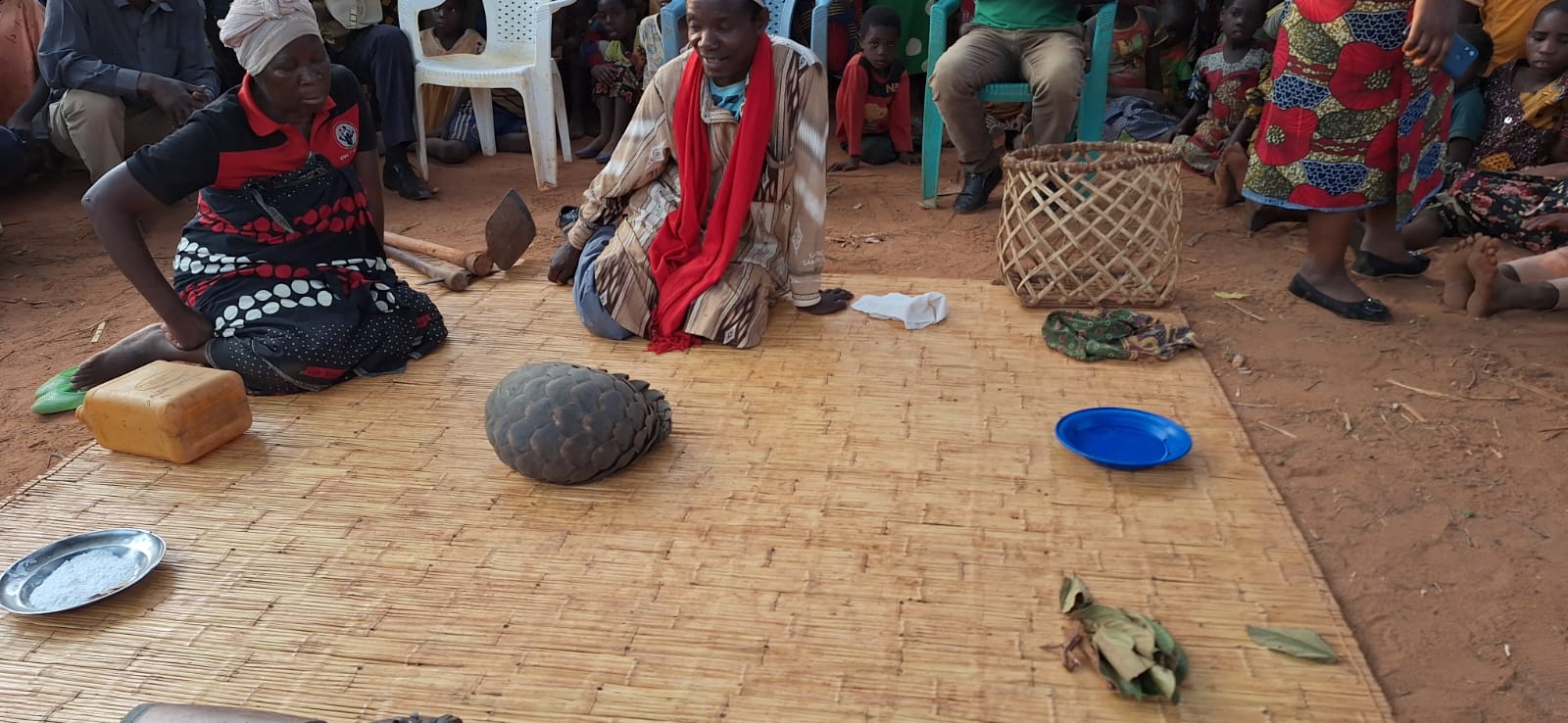The Niassa Special Reserve recently brought back to the wild two pangolins found by communities in the Marrupa and Mavago Districts.
In Marrupa, this occurred in October, when a 4-year-old boy named Luis César, who lives in the Mualawamaka neighbourhood in the Marrupa district, saw a pangolin while playing with his friends and immediately told his parents. The parents, in turn, told the community leaders, who immediately tried to round up and protect the animal.

José Sitoe, Head of Law Enforcement of Niassa Special Reserve, with the pangolin rescued in Marrupa District
The information was then passed on to the Marrupa District Services Economic Activities Offices (SDAE), as well as to the administrative and Police authorities and the NSR scouts who were in the district to resolve wildlife conflict problems. The NSR and SDAE -Marrupa inspection teams carried out an expert examination to confirm the animal and took it back to Mbatamila (NSR’s headquarters). The animal was brought back to the wild in Mbatamila on 2 October 2023 after being examined and found to be in good health.
In Mavago, the pangolin was seen in the agricultural fields by some members of the community, who immediately reported the incident to Chief (Régulo) Mataka, and the news was passed on to the NSR Administration and to SDAE-Mavago and PRM (The Police of the Republic of Mozambique).
The animal was rounded up and then the community leaders went on to perform traditional interpretive ceremonies relating to the pangolin’s visit as per local customs. After this ritual, the pangolin was returned to the wild by the NSR team after being examined and given all the necessary care for its well-being.
According to the local leaders, when a pangolin appears there is a ritual to be followed, which involves placing objects on the mat where each object or item has its own meaning: Weapons [wars], Water [rains], Leaves [drought], Flour [hunger], Medicines [diseases or pandemics], Hoe [agricultural production], among others.

Community leaders during the traditional ceremony of exaltation to the appearance of pangolin
The leaders ask the animal the meaning of its visit and when the animal stands up towards the object placed there, the reason for the animal’s visit is deciphered and it is then taken back to nature. The pangolin is considered a sacred animal by the local communities, and it is regarded as an animal sent by God to bring a message to the community. Worth noting that the pangolin is a protected species and according to wildlife trafficking monitoring is one of the most trafficked mammals in the world.
The Niassa Special Reserve would like to thank the local communities for their commitment and engagement in nature conservation activities, as witnessed by these two events that took place simultaneously in different districts. It is hoped that these events will serve as an example in all 8 districts that are part of the NSR, as well as throughout the country, the region, the continent and the world in general.